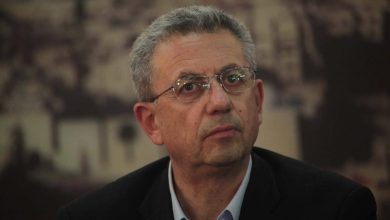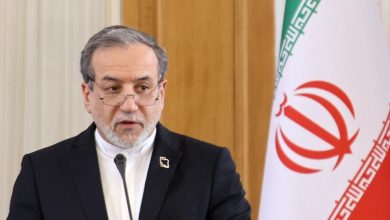On Palestinian Child Day: Israel Is Systematically Erasing an Entire Generation
On Palestinian Child Day, Gaza’s children speak from beneath the rubble—of hunger, fear, shattered dreams, and a longing for a life they can barely remember.

Watan-In one of the alleys of the devastated city of Khan Younis, where rubble is scattered everywhere, nine-year-old Ali Muammar sits on the edge of a shattered wall. His small eyes carry a pain that words cannot describe, his hand resting on his chest as he struggles to catch his breath between the roars of Israeli warplanes overhead. Since the beginning of the assault, Ali has known nothing of play or rest—every day is a battle to stay alive.
Ali was once an energetic child who loved playing with friends in the neighborhood, running through narrow streets, laughing and joking. But now, everything has changed. His neighborhood has become the ruins of destroyed homes. The streets he once roamed are filled with debris and broken glass. Schools no longer open their doors. Places once familiar to Ali are now war zones, and the buildings that once symbolized hope have become piles of rubble.
Ali and the Dream of Returning
That morning, after waking up to the sound of bombing shaking the ground beneath him, Ali decided to go out in search of something to eat. He and some friends tried to reach the bakery at the edge of the neighborhood, hoping to find bread for the day. Though Ali was used to long lines, this time the bakery was closed—there was no fuel to operate it due to the siege and closed crossings. People wandered the streets, eyes weary, searching for anything to keep them alive.
The word that echoed in his heart was simply: “return.” Return to a life he barely remembers, a life once full of hope, laughter, and love. Now, nothing is the same. He doesn’t know where to go or how to make sense of days defined by the sound of death.
As he walked among the rubble, Ali recalled his days at school—those moments of learning letters and numbers, raising his hand to answer questions, feeling joy when he completed homework. But now, education is a distant memory. Many of his friends are gone—some killed in airstrikes, others displaced or orphaned.
Ali stopped suddenly at a street corner, where other children gathered by a water barrel, complaining of its scarcity. Some were trying to get a piece of bread from a bakery that had partially opened. He sat beside them, lost in thought—how everything had changed. His childhood had vanished under smoke and explosions. That morning, there was nothing but memories bleeding with every wound, every cry echoing in the sky.

Childhood Under Genocide
On April 5, as the world marks Palestinian Child Day, children in Gaza awaken to a grim reality. In the destroyed alleys of the city, among the ruins of what were once warm homes, barefoot children tread carefully through the rubble, searching for food or a drop of water. There are no flags of celebration waving in their skies—only a fragile hope for a tomorrow that may never come, and dreams stolen with the first strikes.
In the heart of this ongoing war, the wounds of Gaza’s children deepen daily—not only on their bodies, but in their fading innocence.
In every corner of the shattered city, children witness scenes of suffering and destruction, navigating the shards of their broken lives, asking: How can our world ever return to what it was amid this genocide?
This war does not distinguish between children—it robs them of everything: safety, childhood, and even dreams. It leaves only devastation, even on days meant to be filled with hope. On Palestinian Child Day, joy becomes a distant memory, and their dreams turn to dust.
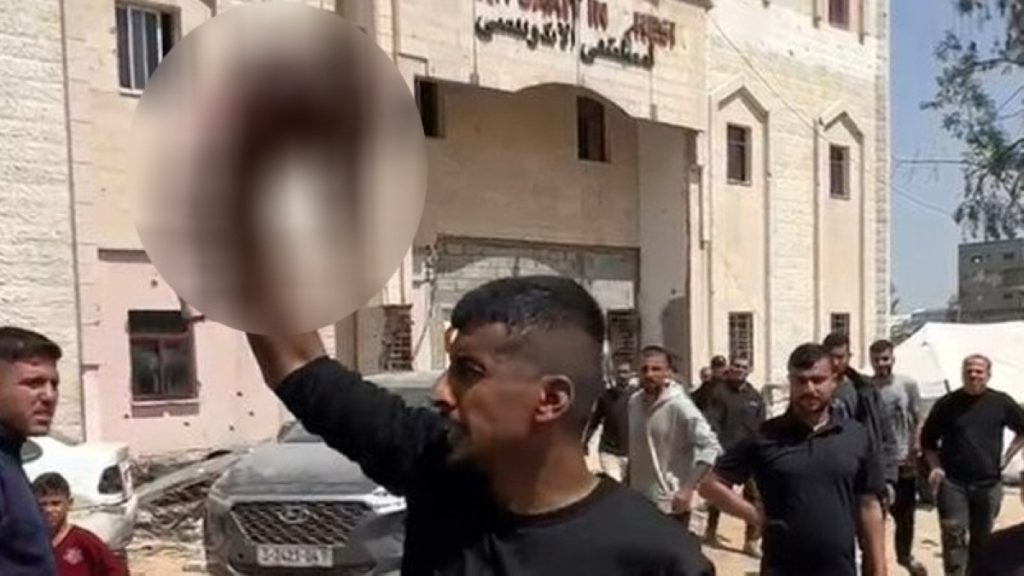
From the Heart of Hell
Ahmad Masoud, a researcher at the Euro-Med Human Rights Monitor, shares his testimony with deep sorrow:
“Since the start of the war on October 7, 2023, we’ve lost over 15,000 children. This is not just a number—it’s a tragic image of an entire generation deprived of its most basic rights. These casualties reflect the scale of the humanitarian catastrophe we are living.”
As the war enters its 550th day, children’s suffering only worsens, and the most pressing question remains: How long will the world stay silent in the face of these massacres?
He concludes: “These children have been robbed of their right to life—no food, no safety, not even the most basic of rights.”
Raghad: I Wish the War Would End
Amid the devastation, standing outside an empty bakery, 12-year-old Raghad Sami speaks with exhaustion:
“I wish this war would end. Our life has become an endless struggle. Every day we wait in line for water, then beg for food at soup kitchens, then stand in line again for bread.”
She adds: “Schools are no longer available to us, and we don’t know when this suffering will end. We fear death every moment, but all we have left is the small hope that this war might stop.”
The war has taken more from Raghad than just a home or friends—it has stolen her childhood in ways she cannot even understand. “I want to go back to my school. I want to live a normal life. But fear controls everything. We are not living—we are just struggling to survive.”
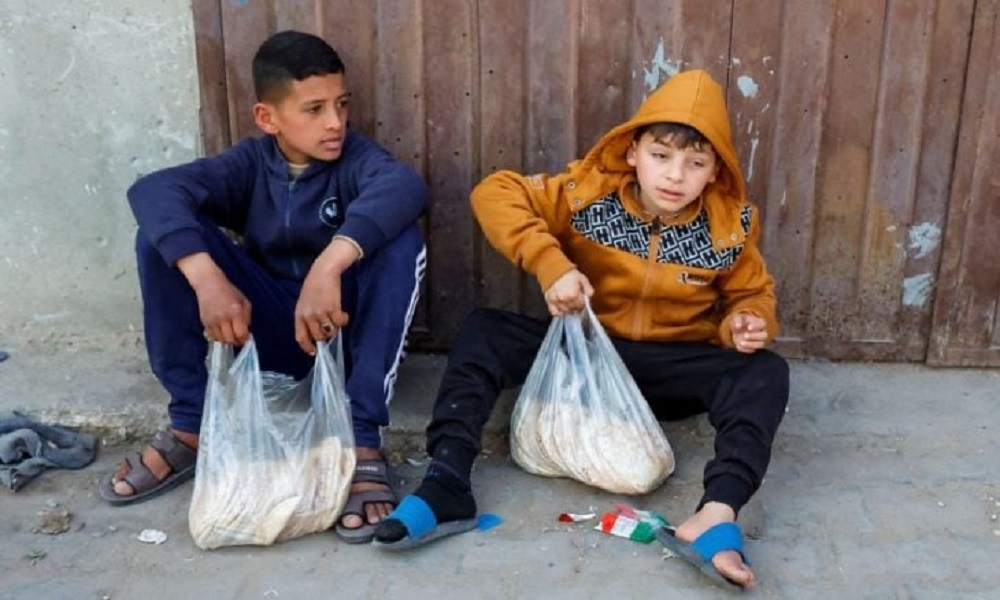
A Daily Humiliation
In front of a water desalination plant in Deir al-Balah, where families stand in chaotic lines, 11-year-old Mohammed Ibrahim voices his pain with words far heavier than his age:“My only wish is for the war to end so we can go back to school. We used to go to school feeling safe.”
Now, he says: “We don’t know how to live. We stand in long lines for water and bread, and people treat us harshly. We don’t know what normal life is anymore.”
Mohammed, once an active child full of curiosity and play, has become a boy scarred by violence and humiliation. The trauma goes deeper than hunger or fear—it reaches his heart, a heart that only longs to return to the classroom.
Layan Zuhair, not yet nine years old, lives in constant fear:“I can’t sleep at night. I wake up in panic from the sounds of planes and bombs. I’m always scared.”
She adds: “Even when I eat or try to play, I just want to go back to school and see my friends. We want to live like the rest of the children in the world.”
Her short sentences carry the weight of deep sorrow and loss, reflecting the suffering of an entire generation of Gaza’s children. In Layan’s eyes, dreams blur with reality, and hope clashes with tragedy. But she is not alone—every child in Gaza carries the same cry in their heart: a simple dream that life may one day return.
Wounded Fathers
The testimony of the father of Adam Al-Najjar, who lost his leg due to random shelling, reveals the deeper pain parents endure as they watch their children transform before their eyes, helpless:“My son loved football. He dreamed of becoming a famous player. But now he’s lost his leg. Every day he asks me, ‘Dad, when will my leg come back?’ And I have no answer.”
He continues: “My child is not the same anymore. He’s sad, silent, doesn’t want to play or leave the tent. This war stole everything—his dream, his childhood, the life we once had.”
These words capture another kind of tragedy—pain that is not just physical, but spiritual, emotional. Dreams destroyed before they could bloom.
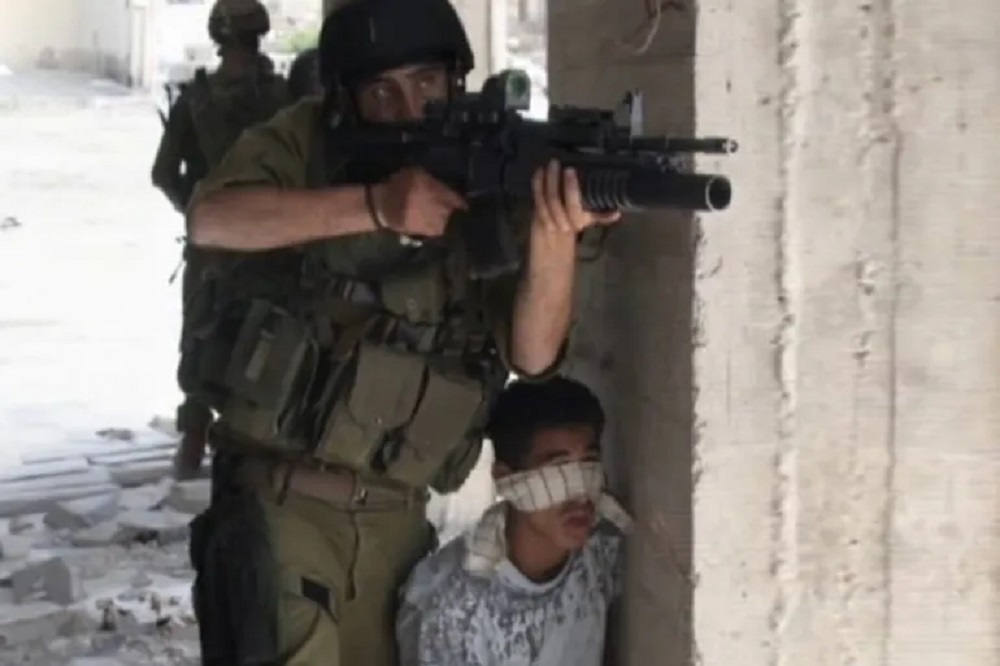
Unpunished Crimes
Humanity cannot remain silent in the face of such atrocities unfolding daily in Gaza. Numerous reports from the United Nations have described the targeting of children in Gaza as a “grave violation of human rights.”
UNICEF stated:“What is happening in Gaza is one of the worst humanitarian disasters the world has seen. Children are being directly targeted by bombings and blockades.”
Amnesty International confirmed:“The Israeli forces are systematically violating international humanitarian law by indiscriminately targeting civilian areas, putting children at unprecedented risk.” The organization added that these violations include the random bombing of homes and schools, which has resulted in the death and mutilation of thousands of children.
As the international community fails to take decisive action, the International Criminal Court has called for an urgent investigation into the crimes committed in Gaza, emphasizing the need to hold those responsible accountable, especially those who deliberately targeted children.
He concluded:“If the international community does not act to confront the genocide and destruction of children in Gaza, we will witness an entire generation physically and psychologically shattered.”




